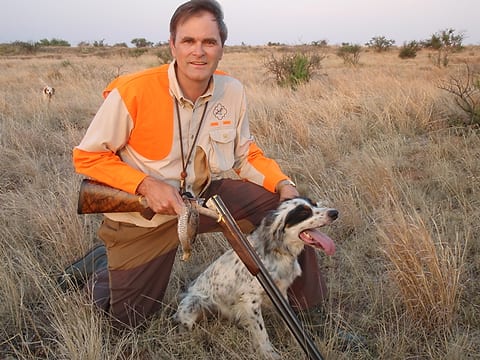 “Patti Marie” was the nickname given to a female bobwhite quail harvested last summer by special permit at the Rolling Plains Quail Research Ranch near Roby.
“Patti Marie” was the nickname given to a female bobwhite quail harvested last summer by special permit at the Rolling Plains Quail Research Ranch near Roby.
But unlike other chick-nurturing hens, she might be remembered for a different contribution — a scientific breakthrough that researchers hope may someday help reverse dwindling populations of bobwhite quail in Texas.
Pattie Marie became the “prototype specimen” for a RPQRR project that has produced the first complete sequencing of the bobwhite quail genome.
An animal’s genome, researchers explain, is the total of all hereditary information that is encoded within its DNA.
Researchers hope similar data from other quail will help identify quail lineages with robust genes that resist stressors, especially diseases.
Dr. Chris Seabury at Texas A&M University’s Department of Veterinary Pathobiology supervised the genetic work.
Dallas-based Park Cities Quail funded half of the $70,000 project. Joe Crafton, the group’s chairman, paid the other half.
The discovery was announced March 8 at the group’s annual fundraiser in Dallas.
Crafton is the hunter who harvested the prototype specimen, which he named for his mother, Pattie Marie Crafton, who happily encouraged her family’s quail hunting trips in Tennessee.
“It was one of the greatest things I’ve been involved with,” Crafton said on the genome project. “There are only a few wildlife species that had a complete sequencing of their genome.”
Most of this genetic work has focused on domestic livestock, Crafton said.
There could be several applications for the data.
Dr. Dale Rollins, executive director of the RPQRR, said if it helps identify populations of disease-resistant quail, their offspring might be used to repopulate other areas.
But that’s not as easy as it may sound.
Rollins said he’s aware of only a couple instances that wild quail were trapped and relocated, and only one was deemed a success.
Those efforts, he said, might have brought better results, “if we could’ve selected a more hardy bird.”
Crafton said the data would be shared widely with researchers concerned about quail.

